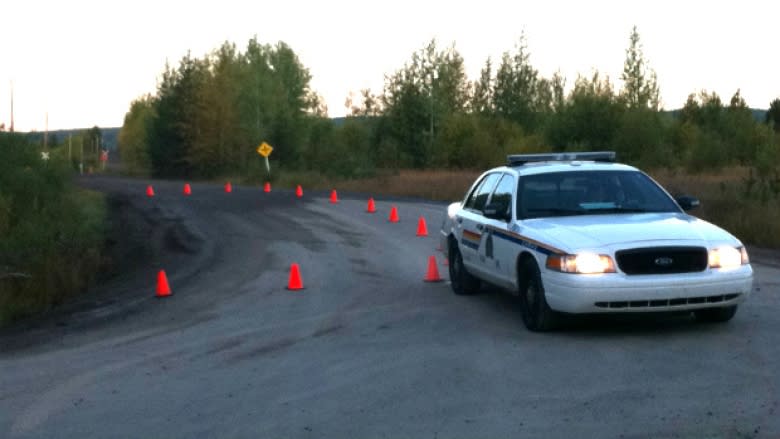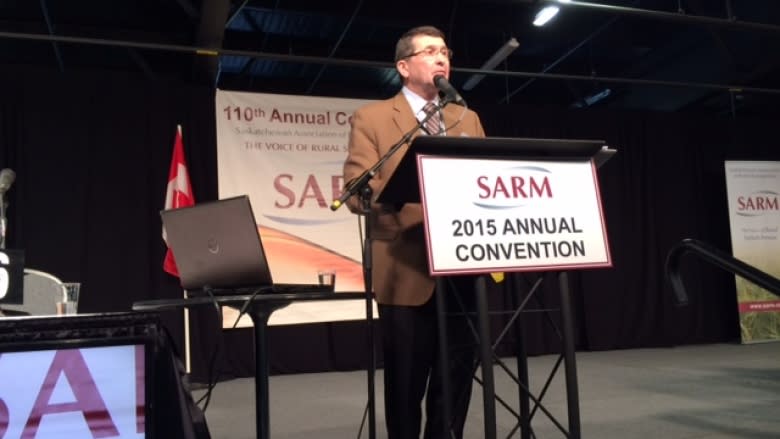Fine revenue could bolster rural policing, says SARM president
The president of the Saskatchewan Association of Rural Municipalities says the organization is open to speaking with its members about paying more for policing in rural areas.
Rural land owners are getting more and more frustrated with slow reaction times from police. When calls are made, police can sometimes take up to an hour or more to respond and make their way out to a scene.
"When you're living out in a rural area, naturally you're a long ways from a detachment," Orb told CBC Radio's The Afternoon Edition. "In some cases, it might be hours before someone gets there from the RCMP and that's understandable."
Right now, residents of rural municipalities pay between $43 and $70 per year for policing costs. By comparison, residents in Saskatoon and Regina will pay more than $380 per year.
However, Orb noted rural areas do not receive fine revenue on the same level as towns and cities. If the RMs were to receive some fine revenue, Orb thinks it would mostly be in the form of traffic infractions.
"There are lots of fines that are being handed out, but right now those fines go to the province. They don't go to the RMs," Orb said.
He admitted the number was a moving figure varying by year.
"It would make a difference if RMs would receive some of that money."
Residents of rural Saskatchewan say they feel a proactive measure is needed in the situations when the police cannot arrive in time, such as self-defence.
Controversial resolution
Earlier this month, SARM delegates voted in favour of a resolution which aimed to lobby the federal government to expand self-defence laws in the province.
Saskatchewan Justice Minister Gordon Wyant promptly denounced the resolution, saying the consequences and implications would sway Saskatchewanians to the side of caution.
"I don't think that's something we support in this country," Wyant said last week.
Rural resident Gordon Kruger says if someone is aiming to defend their home from a break-in in progress, they're in a worse situation than the bandit.
"You can't defend your own property because you're the one that's going to be liable [for prosecution]," he told CBC.
Kruger lives in the R.M. of Glen McPherson. For Richard Crashley, a resident of the R.M. of Big River, he says police won't go out to rural areas to remove potential problematic individuals from parcels of land and properties.
"If I pull my truck up on your lawn in the city ... You're going to phone the cops and the cops are going to come and remove me," Crashley said.
"They won't do it out there so we have to do it ourselves."



